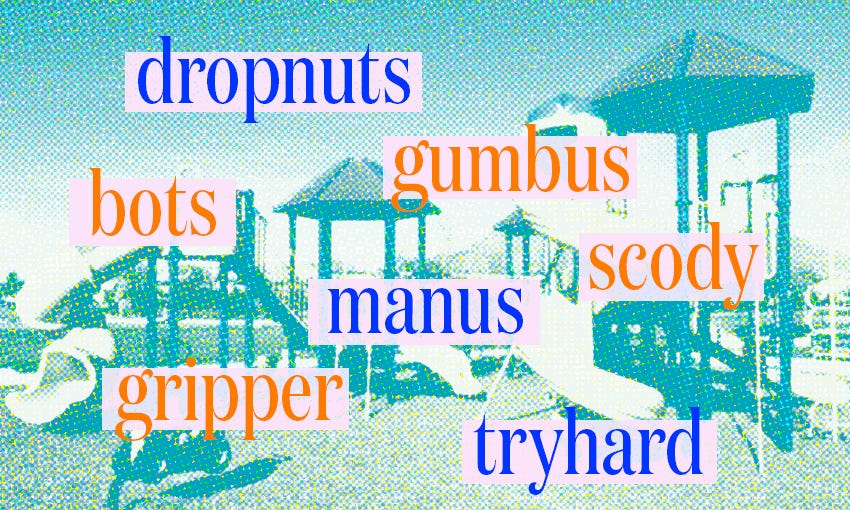Wellington’s water woes may be getting worse
Already in level 2 restrictions, the capital could soon face tougher rules as water usage remains unsustainably high.
Mōrena, and welcome to The Bulletin for Friday, January 26, written by Catherine McGregor.
In today’s edition: Mental health issues a factor, not an excuse, says Kiri Allan in interview about car crash and resignation. Proposed tobacco tax freeze called ‘outrageous’ by health experts; Why DTI is the latest acronym in the Reserve Bank’s toolkit. But first, a stark warning for Wellington water users.
Wellingtonians warned level 3 could be around the corner
Wellington’s has had a rough go of it this week. If having one of its main streets described as “a third world shambles” by a failed candidate for the Auckland mayoralty wasn’t enough, residents now face the prospect of further restrictions on their water usage. RNZ reports that the region could move into level 3 restrictions within the next fortnight unless water usage is significantly reduced. Wellington City, Upper and Lower Hutt and Porirua are currently under level 2 water restrictions which ban household garden sprinklers and irrigation systems. Level 3 would ban all outdoor residential water use and ask households to reduce indoor water use. This level would also allow water regulator Taumata Arowai to declare a drinking water emergency, giving it “broad and flexible powers” to protect the supply of drinking water.
The staggering size of the problem
While you already know that the capital has a pipe problem, you may not know just how serious it is. As Stuff’s Ryan Anderson lays out in a recent explainer, the region is currently losing about 40% of its water supply – roughly the equivalent of 27 Olympic sized swimming pools – every day because of leaky pipes. In December, Wellington Water estimated there were more than 5000 leaks in its network, with leaks on private property – which the utility is unable, as a rule, to monitor or fix – believed to be a significant contributing factor. While many of those leaks will be mere dribbles, Dileepa Foneska at BusinessDesk (paywalled) writes that Wellington Water has identified 406 medium-priority leaks. “Medium-priority leaks are ones where ‘only’ 4-10 litres of water are being lost every minute.”
Who’s to blame?
As Wellingtonians stand by, emergency water tanks at the ready, their thoughts understandably turn to who to blame for the shambles. The Spinoff’s Wellington editor Joel MacManus has a guide to all the likely suspects, from El Niño weather systems to city councils who for decades took an “out of sight, out of mind” approach to water. As far as action now, local government minister Simeon Brown last week demanded answers from mayor Tory Whanau. His letter cited part 10 of the Local Government Act, marking “the first step in the Crown’s ability to intervene”, writes Andrea Vance in The Post (paywalled). Whanau has failed to rise to the moment, Vance argues. She’s been all but “invisible” in recent weeks, Vance says, with a communication strategy “centred around her personal problems” rather than the crisis at hand.
Why water meters are such a hard sell
While fixing the leaks will take many years and millions of dollars, there’s one thing the council could do that experts say would make the situation a whole lot better. Bringing in water metering would allow leaks to be immediately identified, including those on private property. Further up the coast in Kāpiti, water has been metered since 2014. Within 18 months of meters being brought in, fixes to hundreds of leaks had led to a 90% decrease in water use. The problem: as then Kāpiti mayor Jenny Rowan found out, water meters tend to be political suicide. That’s why many stakeholders are advocating for a national water metering policy to save councillors from having to vote for an unpopular new system themselves.
Save on power this holiday season with Electric Kiwi
You can cut your power bill costs and help the planet with Electric Kiwi’s time-of-use power plans.
Pocket some savings by load shifting with Electric Kiwi’s time-of-use and off-peak power plans this summer.
Learn more at Electric Kiwi today. (sponsored)
Mental health issues a factor, not an excuse, says Allan
Kiri Allan says she continues to feel guilt and shame over the “intense” evening that ended her political career. Speaking to the Herald’s Claire Trevett, Allan says her unease over a recent ram-raiding bill targetting children and her own mental health issues contributed to her state of mind that night. However she says mental health struggles are not an excuse. “It was my responsibility to manage that aspect of my life and I didn’t do that very well.” She is adamant that allegations that she fostered a toxic workplace had nothing to do with her mental health leave in the weeks leading up to the crash. She admits she did “drive hard and drive fast” to see her policy programme put into action. “In saying all that, probably it was too hard, too fast for some people.” Allan is also appearing on Breakfast this morning to discuss some of the same issues.
Proposed tobacco tax freeze called ‘outrageous’ by health experts
News that associate health minister Casey Costello sought advice on a three-year excise tax freeze for smoked tobacco has appalled anti-smoking advocates. Boyd Swinburn of Health Coalition Aotearoa says freezing the inflation-adjusted tax would make cigarettes and other smoked tobacco cheaper in real terms. "She's acting more like a minister for the tobacco industry," says Swinburn, who is calling for her removal as a minister. RNZ’s Guyon Espiner reported yesterday that documents supplied to Costello by the Ministry of Health stated she had requested information on the impact of such a tax freeze. Costello says she has “some sympathy” for the idea because of the “incredible financial burden” carried by smokers. Public health professor Janet Hoek says Costello has it wrong: “I absolutely agree that we ought to make smoking less financially burdensome for people and the very best way to do that is to help those people quit."
The Spinoff is powered by its supporters
In 2023, Spinoff readers funded some of our most beloved, well-read, impactful work. Help Me Hera, The Cost of Being, powerful longreads, Election 2023 coverage, laugh-out-loud satire, Auckland stories, Wellington stories, Christchurch stories and everything in between were powered by Spinoff members and donors. If you did support us, thank you from all of us at The Spinoff. If helping fund well-crafted and insightful journalism is on your list for 2024, donate today or sign up to become a Spinoff member.
The latest acronym in the Reserve Bank's tool kit
Earlier this week the Reserve Bank of New Zealand proposed a new debt-to-income (DTI) ratio limit. Along with the 11-year-old loan-to-value ratio (LVR) limit, the RBNZ hopes these lending restrictions will help "limit the build-up of systemic financial risk" in our housing market. In the latest episode of When the Facts Change Bernard Hickey talks to Helen O’Sullivan, Valocity Global's CEO of real estate, to dig into the proposed policy, and whether LVRs have actually made the financial system safer over the last decade.
Click and Collect
The finance minister’s office confirms she has asked all government departments to identify savings (including potential job cuts), and not just those departments listed in National's election policy.
Almost two thirds of locals surveyed are opposed to the controversial proposed international airport in Tarras, Central Otago.
Dunedin is finally getting rid of its council rubbish bags, with a new wheelie bin system – including one for food scraps – on its way.
The country is in for a fine and warm day before an unsettled, rainy weekend for many including Auckland.
Feeling clever? Click here to play 1Q, Aotearoa’s newest, shortest daily quiz.
Are you a tryhard, a sad guy, or a gumbus? A group of Spinoffers look back at the most memorable schoolyard insults of yesteryear. Workers are protesting outside an office demanding $100k in back pay, but the boss of the company based there claims it’s nothing to do with him. Eda Tang investigates. 'Fanny' is on the list of baby names banned in New Zealand, but 'Dick' is still fine, reports a confused Stewart Sowman-Lund. Every episode of Shortland Street from 1992 is now on YouTube, and Tara Ward is here for it. Leo Molloy visited the city of Wellington and found a wasteland. Joel MacManus tries to sympathise. Hera Lindsay Bird advises a reader wondering whether to roll the dice on a Dungeons and Dragons based romance.
Sporting snippets
A month out, the first Australia vs New Zealand test at the Basin Reserve is already sold out.
"We are here as a Proteas side – we are not a second or third rate side." South Africa cricket coach defends inexperienced test match team ahead of NZ tour.
Got some feedback about The Bulletin, or anything in the news? Get in touch with me at thebulletin@thespinoff.co.nz.
If you liked what you read today, share The Bulletin with friends, family and colleagues.













I've just identified some waste the government can cut!
David Seymour is our new Associate Justice Minister with responsibility for the Treaty Principles Bill (https://www.rnz.co.nz/news/political/507629/prime-minister-announces-minor-cabinet-reshuffle). But Luxon insists that National only guaranteed to support the bill to select committee, and although he repeatedly refuses to confirm that National will definitely vote against it afterwards he is confused that people are suspicious and doesn't "know how we can be any clearer than that" (https://www.rnz.co.nz/news/political/507376/luxon-says-position-on-treaty-bill-clear-but-doesn-t-unequivocally-rule-it-out).
If National are totally definitely 100% we can't be any clearer not going to vote for the bill after select committee, then we don't need a cabinet minister with special responsibility for it, do we? Classic case of the kind of ridiculous government waste that ACT hates.